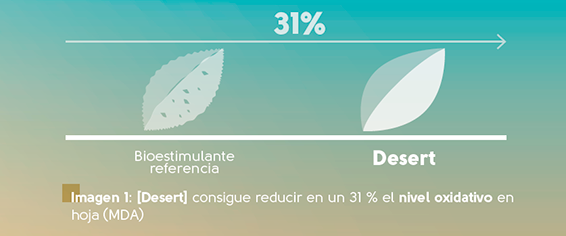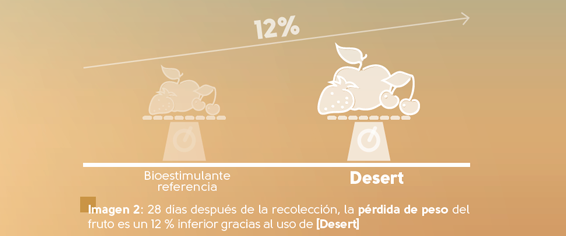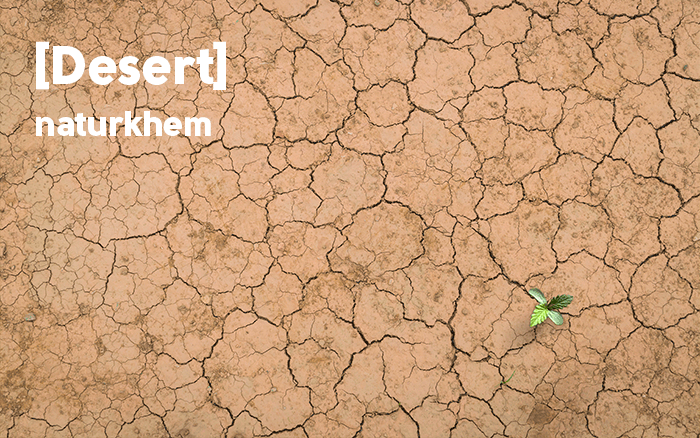In most crops, both plant growth and reproductive growth are clearly limited by the environmental conditions, such as hydric deficit, high salinity, extreme temperatures and nutrient availability. Salinity as an adverse condition to growth was, up until recently, a factor of minor importance and was located only in areas near the coast or in certain environments arising from the evaporation of water loaded with salt. However, the development experienced by the agricultural techniques in the past years, together with the over-exploitations of aquifers, has caused the saline stress to be currently one of the main problems that fruit growing faces.
The challenge of [Desert] biostimulant arises from a large number of scientific works related to the response of crops to adverse environmental conditions. Based on these signs, naturKhem presented an investigation project together with the R&D&I department, the Universidad Jaume I of Castellon. The principal objective of the investigation project that lasted for 11 months was to analyse the effect of the application of different biostimulant products regarding plant physiology in different crops subjected to salinity conditions.
For this study, foliar treatments with [Desert] technology were performed, and physiological, growth and biochemical measures. Among other parameters, diameter variations of the trunk of all the plants and the foliar concentrations of proline, malonyldialdehyde (MDA), chlorides, abscisic acid, jasmonic acid and salicylic acid were determined. At the end of the experimental period, production measures were also taken regarding the intrinsic and extrinsic quality of the fruit and its post-harvest performance.
- It reduces oxidative damage caused by environmental stress. (Image 1)
- It reduces weight loss in post-harvest life. (Image 2)
- It protects the plant against the damage caused by the high salinity of irrigation water.
- It improves plant status and maintains a high harvest.
- It advances fruit ripening.
- Organic agriculture certificate.


SEE ALL PRODUCTS












